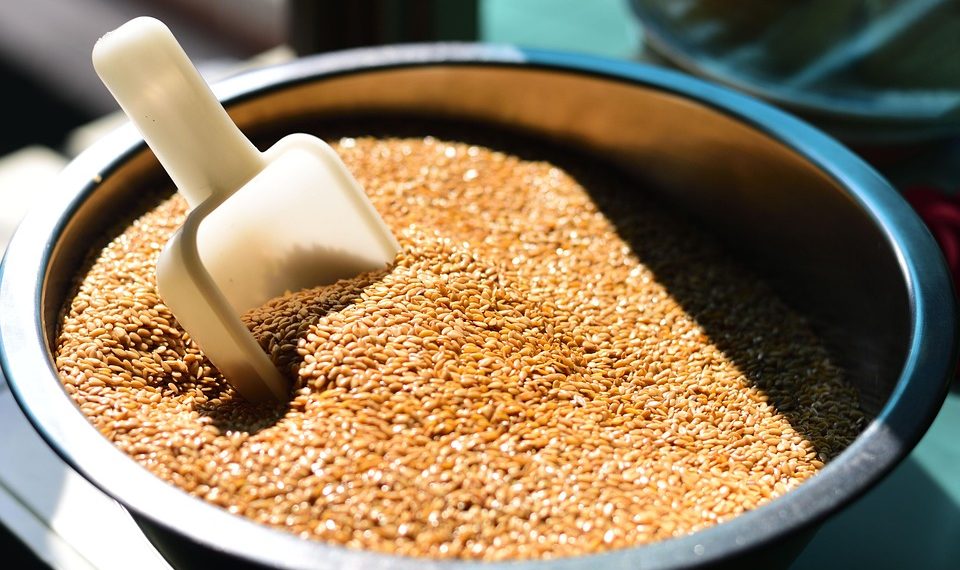Contents
Discovering the Strength of Flax Seeds for Bone Health
Have you ever crunched into a fresh salad topped with tiny, nutty seeds and wondered what nutritional powerhouses you’re consuming? Flax seeds might be small, but they pack a punch—especially when it comes to bone health. Often overshadowed by flashier superfoods, flax seeds are becoming an increasingly popular choice for those looking to boost their wellness in a natural and approachable way.
This article dives into the compelling benefits of flax seeds for stronger bones, showcasing how these tiny seeds can help bridge the gap between diet and skeletal health.
1. Rich Source of Omega-3 Fatty Acids
Flax seeds are well-known for their abundant omega-3 fatty acids, particularly alpha-linolenic acid (ALA), which has been linked to various health benefits. Research indicates that omega-3 fatty acids can help reduce inflammation—a significant factor in bone density loss.
A study conducted by Scherer et al. in 2020 highlighted that omega-3s play a crucial role in bone metabolism by promoting the formation of new bone and reducing bone resorption (loss) in both men and women. This is vital because chronic inflammation can lead to osteoporosis, a condition characterized by fragile bones.
However, while the benefits of omega-3s are clear, it’s essential to consider the whole picture. Consuming flax seeds as part of a balanced diet rich in other nutrients, such as calcium and vitamin D, maximizes their effects on bone health.
2. Abundant in Lignans
Another notable component of flax seeds is lignans, which are phytoestrogens. These compounds mimic estrogen in the body and can have a protective effect on bones, particularly in postmenopausal women who are at higher risk of osteoporosis due to declining estrogen levels.
A study published in the American Journal of Clinical Nutrition by Niu et al. in 2019 showed that women who consumed higher amounts of lignans had a lower risk of osteoporosis. The lignans in flax seeds seem to enhance bone density by modulating bone metabolism.
Yet, it’s worth noting that while lignans offer potential benefits, more research is needed in diverse populations to establish definitive connections. So, while adding flax seeds to your diet may help, it’s still important to engage with other preventive measures against bone loss.
3. High Fiber Content
The fiber content in flax seeds is often overlooked but contributes significantly to overall health, including bone health. Fiber aids in the regulation of nutrient absorption and can help maintain a healthy gut microbiome. A healthy gut can lead to better absorption of vital nutrients necessary for bone health, such as calcium and magnesium.
Research published in Nature Reviews Endocrinology by Wu et al. in 2021 showed that diets rich in fiber are associated with improved mineral density. By supporting digestive health, flax seeds indirectly contribute to stronger bones.
Nevertheless, it’s crucial to consume flax seeds with sufficient hydration, as their high fiber content may lead to digestive discomfort if not balanced with adequate fluid intake.
4. Source of Plant-Based Protein
For those following a vegetarian or vegan lifestyle, getting enough protein is important for bone health. Flax seeds stand out as a decent source of plant-based protein, which is essential for bone formation and repair. Protein comprises amino acids that are vital for the development of collagen, a significant component of bone structure.
According to research in the Journal of Bone and Mineral Research by Jäger et al. in 2019, adequate protein intake can enhance bone health and decrease the risk of fractures. Incorporating flax seeds into your daily diet can boost your protein intake, supporting skeletal strength.
However, it’s worth remembering that while flax seeds can provide protein, they should complement other protein sources to meet daily dietary requirements effectively.
5. Vitamin and Mineral Content
Flax seeds are also a treasure trove of essential vitamins and minerals, including magnesium, phosphorus, and vitamin B6. Magnesium plays a critical role in converting vitamin D into its active form, a process vital for calcium absorption and bone density.
A comprehensive review published in Nutrients by Wang et al. in 2020 emphasized the importance of both magnesium and vitamin D in maintaining bone health. Flax seeds contribute to this nutrient synergy that promotes bone strength.
While flax seeds can provide these nutrients, relying solely on them may not suffice. It’s best to consume a wide variety of foods to ensure you are meeting all your nutritional needs.
FAQs about Flax Seeds and Bone Health
Q1: How should flax seeds be consumed for maximum benefit?
You can consume flax seeds ground or whole, but ground flax seeds are often more easily digested and allow for better nutrient absorption. Consider adding them to smoothies, oatmeal, or baked goods.
Q2: Are there any side effects of eating flax seeds?
While generally safe, consuming high amounts of flax seeds can lead to digestive issues due to their high fiber content. It’s best to introduce them gradually into your diet.
Q3: Can flax seeds replace prescribed medications for bone health?
No, flax seeds should be viewed as a dietary enhancement rather than a replacement for medications. Consult with a healthcare provider for personalized advice regarding bone health.
Q4: How does flax seed oil compare to whole flax seeds?
Flax seed oil contains omega-3 fatty acids but lacks the fiber and lignans found in whole flax seeds. Both have their benefits, but incorporating whole seeds may provide a broader range of nutrients.
Conclusion
Incorporating flax seeds into your diet can be a flavorful, nutritious step toward stronger bones. Their omega-3 fatty acids, lignans, fiber, plant-based protein, and essential vitamins and minerals offer a holistic approach to bone health.
While the benefits are compelling, it’s wise to maintain a balanced diet, listen to your body, and consult with healthcare professionals when making significant dietary changes. By doing so, you’ll enjoy not just stronger bones but also a richer, more diverse approach to your health.
References
- Scherer, H. U., et al. (2020). Omega-3 Fatty Acids and Bone Health: A Comprehensive Review. Nature Reviews Rheumatology.
- Niu, Z., et al. (2019). Lignan Intake in Relation to Bone Mineral Density in Women: A Cross-Sectional Study. American Journal of Clinical Nutrition.
- Wu, H., et al. (2021). The Role of Dietary Fiber in Bone Health: A Systematic Review. Nature Reviews Endocrinology.
- Jäger, R., et al. (2019). Dietary protein and bone health: A review. Journal of Bone and Mineral Research.
- Wang, Y., et al. (2020). Magnesium and Vitamin D: The Key to Bone Health. Nutrients.
Get Your FREE Natural Health Guide!
Subscribe now and receive our exclusive ebook packed with natural health tips, practical wellness advice, and easy lifestyle changes — delivered straight to your inbox.














